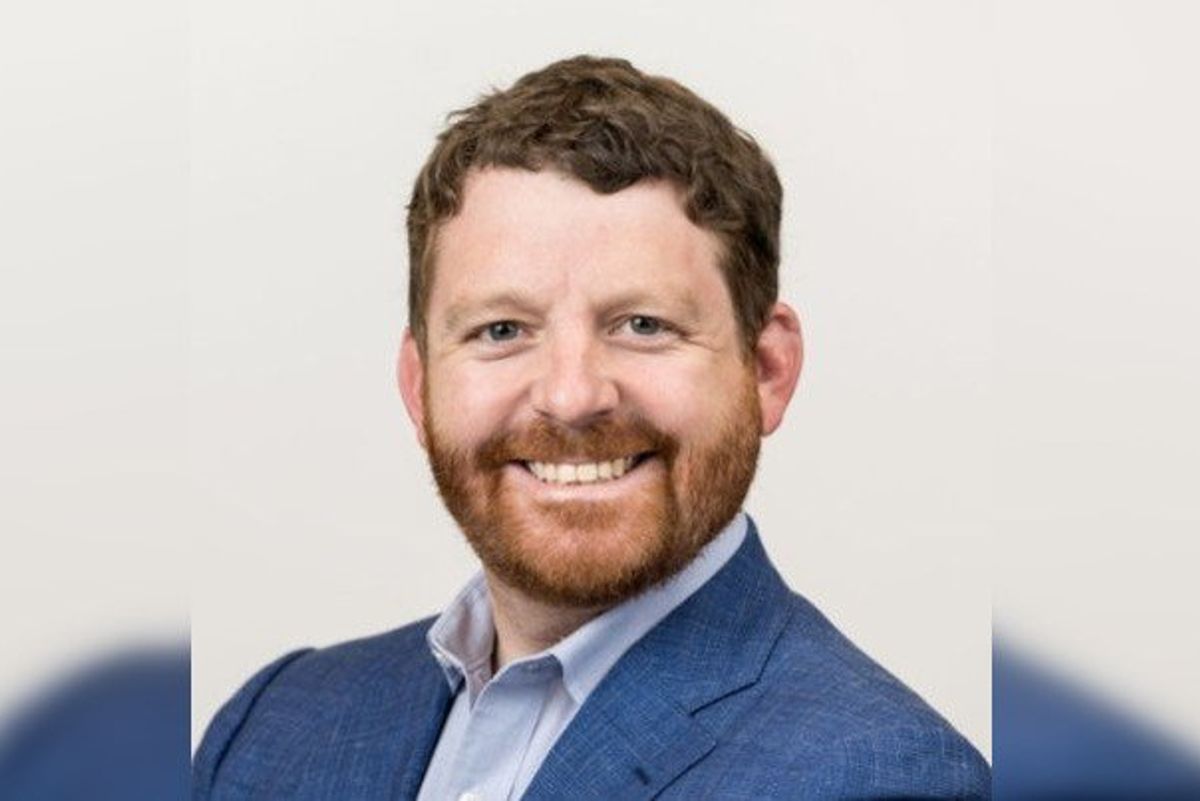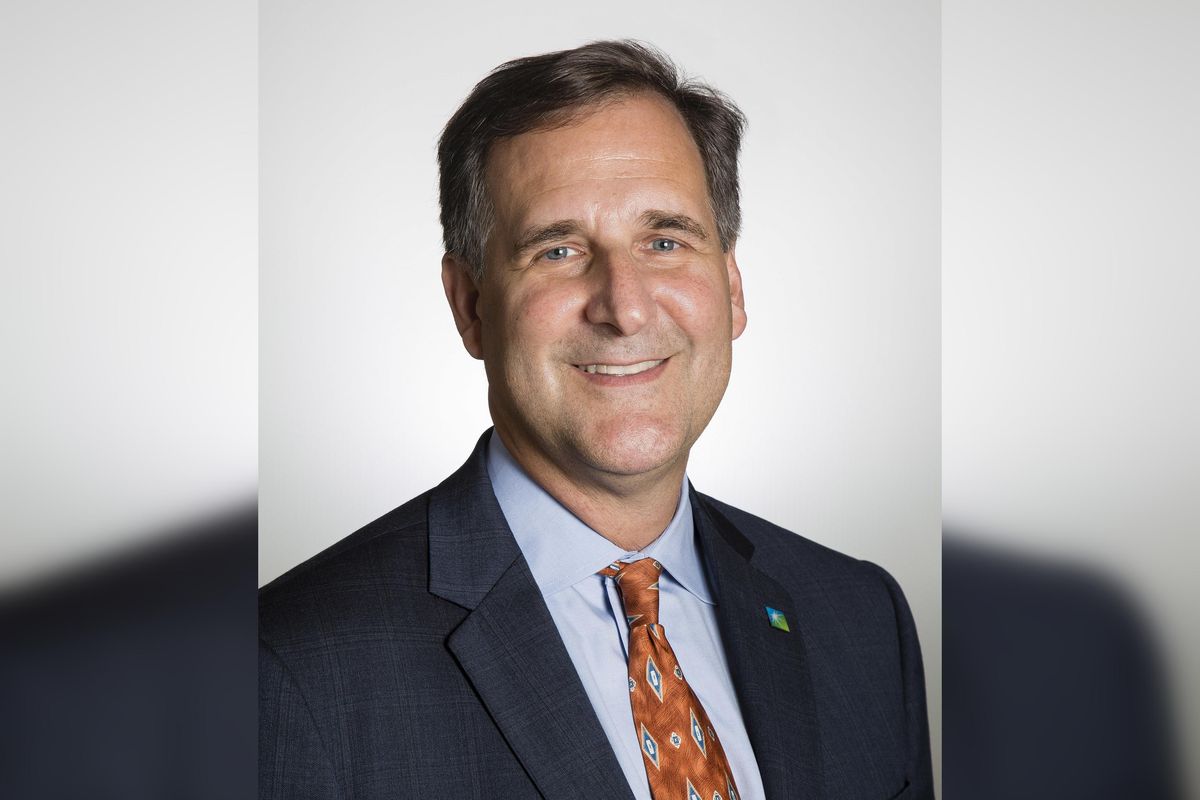What corporations are most supporting Houston's startup ecosystem? The Houston Innovation Awards sought to find that out with a new category for the 2023 event.
The Corporate of the Year category has four finalists — each playing a role in Houston's innovation ecosystem across energy, tech, and health care innovation. Learn about each of these finalists in the interviews below.
Click here to secure your tickets to the November 8 event where we announce the winner of this exciting new category.
Aramco Ventures

Jim Sledzik, North American managing director of Saudi Aramco Energy Ventures, leads the organization locally. Photo via Aramco
Describe your company's work within the Houston innovation ecosystem.
Aramco Ventures has supported the development of Houston's innovation ecosystem as a founding member of the Ion to advance energy transition and Houston's tech economy. Jim Sledzik, managing director, Aramco Ventures North America, serves on the Ion Advisory Council. In addition we support Greentown Labs with its offices in Boston and Houston with Sledzik also named to its Advisory Board. Aramco Venture professionals are frequently tapped as speakers and participants for numerous industry speaking events and "Pitch Competitions" for start-up companies. For example, the 20th Annual Energy Tech Venture Forum held in Houston and organized by the Rice Alliance for Technology and Entrepreneurship; Climate Week NYC; and the first ever Women's Capital Summit in New York City.
Why has your company decided to support the Houston innovation ecosystem?
Houston is considered the energy capital of the world and Aramco's support and involvement will help amplify the city's reputation and presence as a global energy hub.
Describe your company's impact on the Houston innovation ecosystem.
Aramco's impact has been felt throughout the city by our involvement in major innovation events, activities, and investments.
Chevron Technology Ventures

Jim Gable, vice president of innovation at Chevron and president of Chevron Technology Ventures, leads the organization locally. Photo courtesy
Why has your company decided to support the Houston innovation ecosystem?
Investing in the communities where we operate is a core Chevron value, and Chevron is committed to building the innovation ecosystem in Houston. It’s good for our company and it’s good for the city.
The Houston region, with its deep pool of engineering and industry talent, world-class university expertise, growing startup community and vast energy infrastructure, is well-positioned to lead in the creation of lower carbon energy and improve the region’s global competitiveness. By leveraging its strengths, Houston can create its own model for how it’s going to disrupt the energy space.
Describe your company's impact on the Houston innovation ecosystem.
At Chevron Technology Ventures, we leverage our trial and deployment resources, venture investments and strategic partnerships – both internal and external – to support the technological breakthroughs that will enable the evolution to a lower-carbon energy system. CTV is an active sponsor of university programs and accelerators that build up the Houston energy ecosystem. It has led Chevron’s founding partnership with Greentown Labs Houston and was The Ion’s first tenant and program partner. CTV also backs The Cannon and Rice Alliance Clean Energy Accelerator, among others. As a partner and supporter of the innovation ecosystem, Chevron is committed to helping the ecosystem thrive.
Houston Methodist

Michelle Stansbury, vice president of innovation and IT applications at Houston Methodist, leads the company's innovation efforts. Photo courtesy of Houston Methodist
Describe your company's work within the Houston innovation ecosystem.
Our new collaborative space, the Tech Hub at Ion, is one way we are expanding our culture of innovation within Houston and its growing innovation ecosystem. Beyond showcasing ongoing technology, the Tech Hub at Ion also serves as a nucleus for community engagement and networking and hosting educational initiatives, with additional programming opportunities like reverse pitch sessions in the works.
Why has your company decided to support the Houston innovation ecosystem?
Healthcare is evolving at a rapid pace thanks to digital technology, so it’s important to search for solutions that are beyond the traditional walls of the hospital and even beyond our own industry. Serving our patients both in and outside the walls, especially in the community, has been a priority for Houston Methodist since our inception. We’ve had success in the healthcare innovation space, so we think it’s important to pay it forward and support the Houston innovation community.
Describe your company's impact on the Houston innovation ecosystem.
Our new collaborative space, the Tech Hub at Ion, is one way we are expanding our culture of innovation within Houston and its growing innovation ecosystem. Beyond showcasing ongoing technology, the Tech Hub at Ion also serves as a nucleus for community engagement and networking and hosting educational initiatives, with additional programming opportunities like reverse pitch sessions in the works. Houston Methodist’s Center for Innovation often collaborates with technology companies with solutions that provide a better patient experience and/or support clinicians and often these are technology companies early in their start-up journey. One Houston start-up Houston Methodist at the beginning of the pandemic and continues to use is MIC Sickbay, the technology that powers the virtual ICU and uses algorithms and AI to monitor patients.
Microsoft

Rob Schapiro, Energy Acceleration Program director and Houston site leader for Microsoft, leads the company's local innovation support efforts. Photo courtesy of Microsoft
Describe your company's work within the Houston innovation ecosystem.
Microsoft is committed to driving tech and innovation in the Houston community with a specific focus on underrepresented communities. Microsoft is financially supporting the ion, Greentown Labs Accel, DivInc, Tejano Tech Summit, and the Rice Alliance Clean Energy Accelerator as well as programs designed to bring the next generations of Houston founders to the forefront (G-Unity Business Lab, SuperGirls Shine Foundation, Tech Fest Live, PVAMU). Aside from the financial support, Microsoft brings a dedicated team of volunteers and mentors to each of these engagements, and they are helping shape the future of innovation in the city of Houston.
Why has your company decided to support the Houston innovation ecosystem?
We believe that it is our duty to be an active and engaged corporate partner to any and all communities in which we operate. We decided to invest in Houston because of the rich, diverse talent pool and the growing energy transition industry.
Describe your company's impact on the Houston innovation ecosystem.
- Partnered with DivInc to create an Energy Tech Accelerator program that had its first cohort of seven companies this year.
- Driving thought leadership and bringing attention to valuable initiatives through serving on the advisory boards of the Ion (Vice Chair position), Greentown Labs Houston, Rice Alliance Clean Energy Accelerator.
- Supporting the next generation of innovators: 120 high school students received hands on training in innovation and prototyping as part of the G-Unity Business Lab. This program doubled in size due to its success. Microsoft sponsored prototyping and design thinking training. We also seated one of the Hustle Tank judges.
- Graduated 14 students from the Level Up fellowship program in partnership with Prairie View A&M University and Accenture; most students received and accepted employment offers from Accenture.
- Sponsored 20 high school girls who participated in the SuperGirls Shine Foundation's 40/40 mentorship program.
- Ten women founders received mentoring and training as part of the DivInc Women in Tech Cohort
- Held a four-week high school internship program for BIPOC students








 Apple doubles down on Houston with new production facility, training center Photo courtesy Apple.
Apple doubles down on Houston with new production facility, training center Photo courtesy Apple.